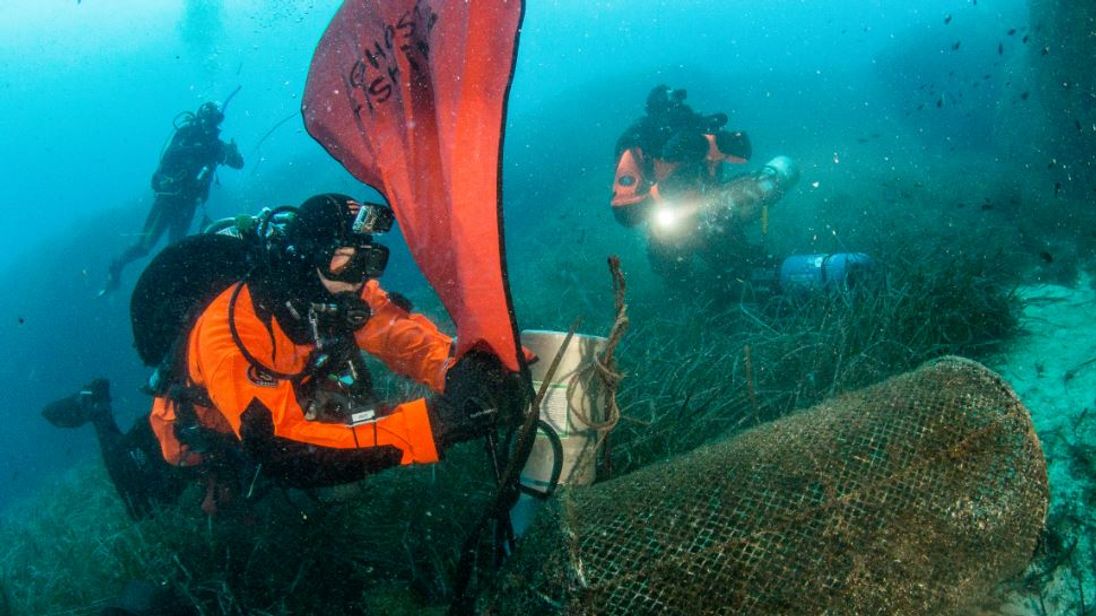 Ecover's bottle which will be made with 50% ocean plastic from Rio de Janeiro bay
Ecover's bottle which will be made with 50% ocean plastic from Rio de Janeiro bay
A new type of plastic bottle has sparked hope in the battle against ocean pollution.
The detergent container is made from 50% plastic collected from the ocean, while the other 50% is also recycled.Eight tonnes of plastic was collected from Rio de Janeiro's bay as part of the clean-up before the 2016 Olympics and this material has been used for Ecover's washing-up liquid bottle.
The company describes it as the first of its kind, also announcing it will only use 100% recycled plastic for its main washing-up liquid range next year and for all products by 2020.
The bottle will be sold for £2 in Tesco stores across the country.
Plastic pollution is a major problem for the world's oceans, something highlighted by Sky's Ocean Rescue campaign.
 A painful death on 'plastic island'
A painful death on 'plastic island'
More than eight million tonnes of plastic is thrown away each year and washed out to sea.
It takes centuries to break down - a drink bottle can take 450 years to disintegrate, while a plastic fishing line could last for 600 years.
Until then, it is eaten by marine creatures and can make its way into our food chain.
 Sky News Special Report: Our Ocean
Sky News Special Report: Our Ocean
More plastic was made in the first decade of the 21st century than the whole of the 20th and, by 2050, the plastic in the world's oceans will weigh more than all the fish, according to The Ellen MacArthur Foundation.
The UK's rivers carry plastic from across the country out into the seas around us and, from 2014 to 2015, there was a 43% increase in the number of plastic bottles washing up on UK beaches
 A look back at the Ocean Rescue conference
Ecover spokesman Tom Domen said: "We launched our first ocean bottle
in 2014 to raise awareness of the impact of ocean plastic on marine
life.
A look back at the Ocean Rescue conference
Ecover spokesman Tom Domen said: "We launched our first ocean bottle
in 2014 to raise awareness of the impact of ocean plastic on marine
life."It's great that the issue has shot up the agenda now but the debate for us needs to move on.
"We need to totally re-think plastic. How we make it, use it, re-use it and recycle it.
"We think industry should take more responsibility because a durable material like plastic for single use is systemically wrong.
"We know it's just the beginning but these are the steps we need everyone to take if we're serious about cleaning up the ocean and reducing our dependence on plastic."


Post a Comment